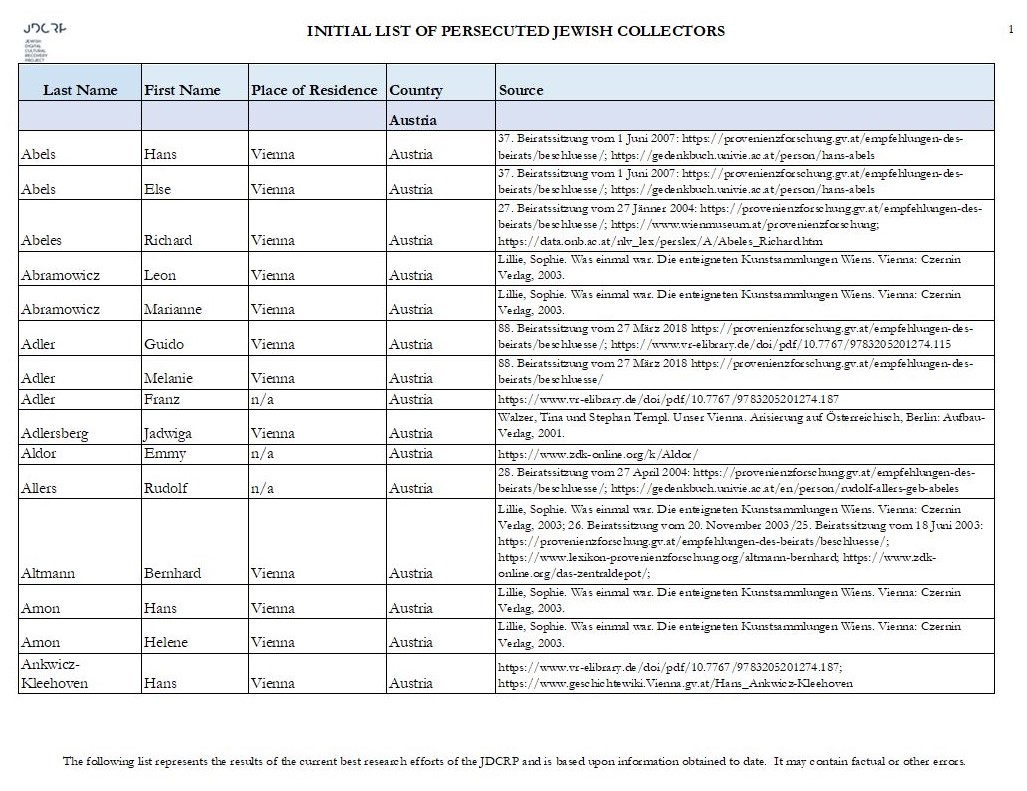Documentation of Persecuted Jewish Collectors
The goal of the project “Documentation of Persecuted Jewish Collectors” is to contribute to a broader understanding of the significant cultural contribution of pre-war Jewish collectors to European cultural heritage. Each name listed exemplifies the collector’s passion at the time – whether from fine arts to book, from Judaica to musical instruments and beyond – but also his or her story of robbery and loss, of persecution and often death, and post-war attempts to recover what was stolen.
In March 2023, the JDCRP published a first initial list of approximately 2,000 names of collectors from various European countries. We continue our research and present as of January 2024 an updated list of over 2,600 Jewish collectors from 13 countries, including Austria, Croatia, Belgium, the Czech Republic, Estonia, France, Germany, Hungary, Italy, the Netherlands, Norway, Poland, and Serbia. More research remains necessary not only to expand the list of Jewish collectors from the countries already covered, but also to include persecuted Jewish collectors from countries that have yet to be researched altogether.
The JDCRP will develop this initial list further to transform it into a powerful research tool. The detail-oriented list will include information to the extent possible on collectors’ lives, their family and business connections, the types of their collections, and their persecution histories. Sources will be meticulously listed to provide easily accessible additional information. A few examples can be accessed here.
Suggestions made regarding adjustments to entries, as well as additional information about persecuted Jewish collectors not yet on the list, may be sent to info@jdcrp.org.
Support by the Conference on Jewish Material Claims Against Germany (Claims Conference) for research and development of the list is gratefully acknowledged, as is additional support by the German Federal Government Commissioner for Culture and the Media (BKM).
Initial List of Jewish Collectors in Europe on the Eve of the Holocaust


